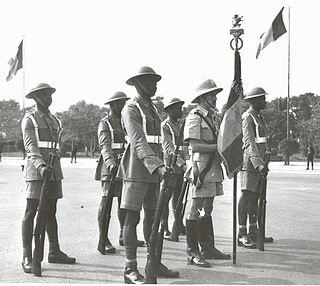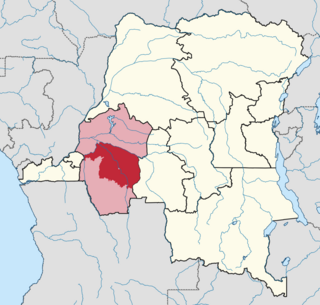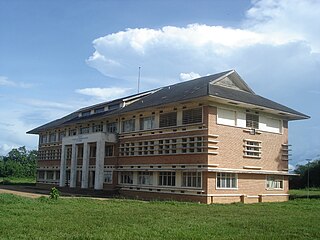| |||||
| Decades: | |||||
|---|---|---|---|---|---|
| See also: | 1908 in the Congo Free State | ||||
The following lists events that happened during 1908 in the Belgian Congo .
| |||||
| Decades: | |||||
|---|---|---|---|---|---|
| See also: | 1908 in the Congo Free State | ||||
The following lists events that happened during 1908 in the Belgian Congo .
| Date | Event |
|---|---|
| 15 November | Parliament of Belgium annexes the Congo Free State as the Belgian Congo. [1] |
| 15 November | Théophile Wahis confirmed in office as governor-general |

Leopold II was the second King of the Belgians from 1865 to 1909, and the founder and sole owner of the Congo Free State from 1885 to 1908.

The Belgian Congo was a Belgian colony in Central Africa from 1908 until independence in 1960 and became the Republic of the Congo (Léopoldville). The former colony adopted its present name, the Democratic Republic of the Congo (DRC), in 1964.

The Democratic Republic of the Congo (DRC), also known as Congo-Kinshasa, is a country in Central Africa. By land area, the DRC is the second-largest country in Africa and the 11th-largest in the world. With a population of around 112 million, the Democratic Republic of the Congo is the most populous officially Francophone country in the world. The national capital and largest city is Kinshasa, which is also the economic center. The country is bordered by the Republic of the Congo, Central African Republic, South Sudan, Uganda, Rwanda, Burundi, Tanzania, Zambia, Angola, the Cabinda exclave of Angola and the South Atlantic Ocean.

The Congo Free State, also known as the Independent State of the Congo, was a large state and absolute monarchy in Central Africa from 1885 to 1908. It was privately owned by King Leopold II, the constitutional monarch of the Kingdom of Belgium. In legal terms, the two separate nations were in a "personal union". The Congo Free State was not a part of, nor did it belong to Belgium. Leopold was able to seize the region by convincing other European states at the Berlin Conference on Africa that he was involved in humanitarian and philanthropic work and would not tax trade. Via the International Association of the Congo, he was able to lay claim to most of the Congo Basin. On 29 May 1885, after the closure of the Berlin Conference, the king announced that he planned to name his possessions "the Congo Free State", an appellation which was not yet used at the Berlin Conference and which officially replaced "International Association of the Congo" on 1 August 1885. The Free State was privately controlled by Leopold from Brussels; he never went there.

The national flag of the Democratic Republic of the Congo is a sky blue flag, adorned with a yellow star in the upper left canton and cut diagonally by a red stripe with a yellow fimbriation. It was adopted on 18 February 2006. A new constitution, ratified in December 2005 and which came into effect in February 2006, promoted a return to a flag similar to that flown between 1963 and 1971, with a change from a royal blue to sky blue background. Blue represents peace. Red stands for "the blood of the country's martyrs", yellow the country's wealth; and the star symbol the future for the country. It is one of the few national flags incorporating a diagonal line, with other examples including Tanzania, Namibia, Trinidad and Tobago, and Brunei.
The Congolese franc is the currency of the Democratic Republic of the Congo. It is subdivided into 100 centimes. However, centimes no longer have a practical value and are no longer used. In April 2022, 2,000 francs was equivalent to US$1.

The Force Publique was a gendarmerie and military force in what is now the Democratic Republic of the Congo from 1885, through the period of Belgian colonial rule. The FP was retitled as the Congolese National Army or ANC in July 1960 after independence.

Belgium controlled several territories and concessions during the colonial era, principally the Belgian Congo from 1908 to 1960, Ruanda-Urundi from 1922 to 1962, and Lado Enclave from 1884 to 1910. It also had small concessions in Guatemala (1843–1854) and Belgian concession of Tianjin in China (1902–1931) and was a co-administrator of the Tangier International Zone in Morocco.

Article 2 of the Constitution of the Democratic Republic of the Congo divides the country into the capital city of Kinshasa and 25 named provinces. It also gives the capital the status of a province. Therefore, in many contexts Kinshasa is regarded as the 26th province.

Belgium–Congo relations refers to relations between the Kingdom of Belgium and the Democratic Republic of the Congo. The relationship started with the exploration of the Congo river by Henry Morton Stanley.

Lualaba District was a district of the pre-2015 Katanga Province in the Democratic Republic of the Congo. The district dates back to the days of the Congo Free State and the Belgian Congo. The original Lualaba District was merged into Katanga in 1910, but in 1933 a new Lualaba District was formed within Katanga. After various significant boundary changes, in 2015 the district became the western part of the present Lualaba Province.
Robert Senelle was a Belgian academic and constitutionalist.

Kwilu District was a district of the Belgian Congo and the Democratic Republic of the Congo. It roughly corresponded to the present province of Kwilu.
The Colonial Charter on the Belgian annexation of the Congo Free State was approved by the Belgian Parliament on 18 October 1908. On 15 November 1908, Belgium assumed sovereignty over the territories comprising the Congo Free State, officially making the Belgian Congo a colony of Belgium.

The National Institute for Agronomic Study of the Belgian Congo was a research facility established in Yangambi in the Belgian Congo, operating from 1933 to 1962.
The following lists events that happened during 1908 in the Kingdom of Belgium.
The following lists events that happened during 1908 in the Congo Free State.
The following lists events that happened during 1957 in the Belgian Congo.
Relations between the Congo Free State and the United States began after recognition between the two states in 1885 when the Congo Free State was established. After Belgium under Leopold II annexed the Congo Free State in 1908, later becoming Belgian Congo, relations ceased between the two nations.